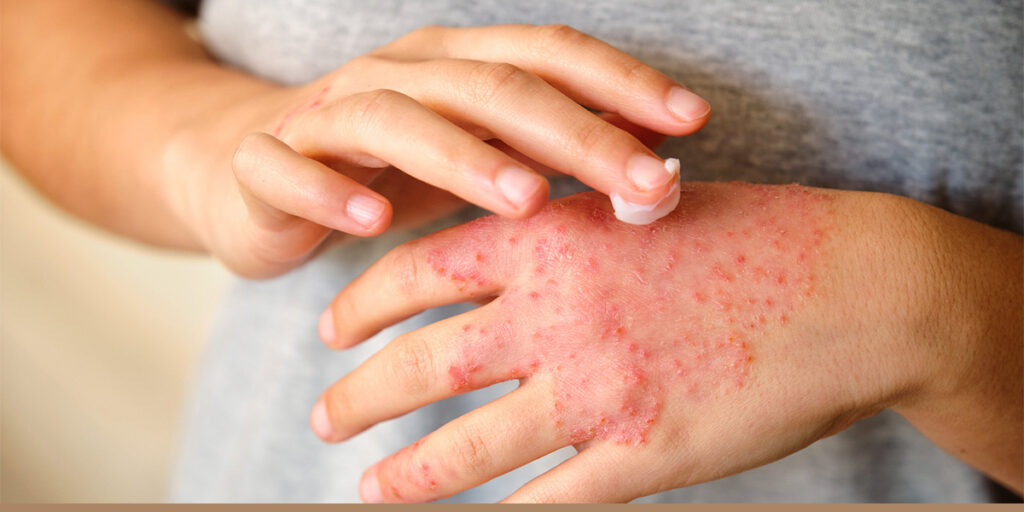Eczema is a common skin condition that affects individuals throughout the year. Seasonal changes often play a significant role in exacerbating its symptoms. For those living with eczema, certain weather conditions or environmental shifts could result in flare-ups, which may lead to itching, redness, and discomfort.
What Is Eczema?
Eczema is a chronic skin condition characterized by inflammation, redness, and itchiness of the skin’s surface. It affects people of all ages and may range from mild, occasional irritations to persistent, severe symptoms that significantly impact daily life. The condition is believed to stem from a combination of genetic and environmental factors, often involving an overactive response to triggers that irritate the skin barrier.
How Can Flare-Ups Be Managed?
Managing eczema flare-ups requires addressing both the triggers and the symptoms. Seasonal changes can introduce new challenges. This makes adaptive strategies useful throughout the year.
Stay Moisturized
Keeping the skin well-moisturized is fundamental to managing eczema. Changes in humidity levels during winter and summer can lead to drier skin, making it more susceptible to flare-ups. Application of dermatologist-recommended ointments immediately after bathing may help retain skin hydration. Using a humidifier may also assist in maintaining moisture in the air.
Adjust Skincare Products
Environmental conditions may necessitate changes to skincare routines. People with eczema should use gentle cleansers and avoid products containing dyes, strong fragrances, or harsh chemicals. During summer, switching to lightweight moisturizers and during winter, opting for richer formulations can help address seasonal skin needs effectively.
Wear Breathable and Comfortable Clothing
Clothing choices can make a difference, especially for those prone to eczema. Loose-fitting, breathable fabrics such as cotton are preferred in summer to avoid heat buildup, while soft, layered clothing works well in winter to prevent irritation. Avoiding scratchy materials like wool or synthetic fabrics helps reduce unnecessary friction against sensitive skin.
Be Aware of Seasonal Triggers
Pollen levels in spring, strong UV rays in summer, and cold, dry conditions during fall and winter may all act as eczema triggers. Regularly tracking these seasonal elements and planning accordingly can minimize exposure. Wearing proper sunscreen in summer or limiting outdoor activities during high pollen counts may mitigate potential risks.
How Can It Be Medically Treated?
When symptoms escalate beyond what at-home care and lifestyle adjustments can manage, medical treatments may help. Consulting with a healthcare professional provides access to various treatment options. Medical-grade topical treatments are often prescribed to reduce inflammation and soothe itching. These treatments should be used under the supervision of a dermatologist to avoid potential side effects. For severe cases of eczema that do not respond to other treatments, dermatologists may explore systemic medications such as biologic therapies.
Meet With a Dermatologist
Eczema is a complex condition influenced by various factors, including changes in season and environment. Developing effective strategies for managing flare-ups starts with an understanding of how these factors affect individual triggers and symptoms. Should symptoms persist or worsen, medical treatments under the guidance of a dermatologist may further improve quality of life. A specialist can provide tailored insights to help manage symptoms and keep flare-ups under control throughout the year.
- Zirconia Cap Price: Estimated Cost & Its Long-Term Benefits
- FREHF – The Revolutionary Future Of Human-Centered Technology!
- Adsy.Pw/Hb3 – Boost Your SEO And Drive More Traffic!
- Fitness Based Vacations By Timeshealthmage.com!
- TimesHealthMag Tips For Improving Sleep Quality – Expert Advice For Better Rest!


Leave a Reply